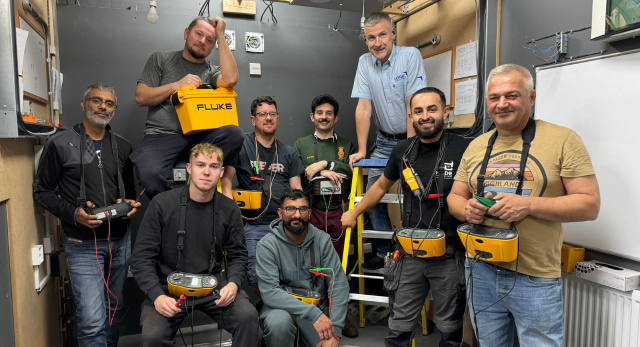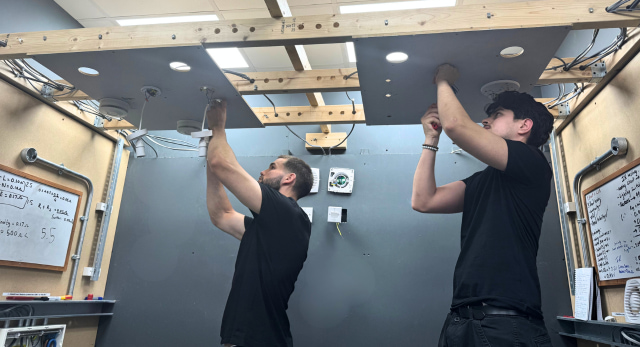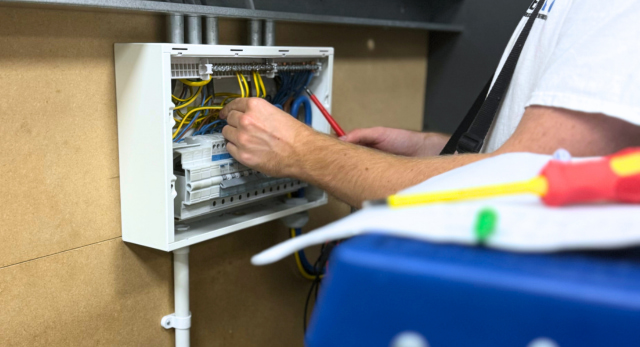So, you’re eyeing up a career boost by completing a periodic inspection and testing qualification or maybe you’re just trying to untangle the web of qualifications out there. City & Guilds, LCL Awards, RQF, ECS cards-it’s enough to make your head spin faster than a dodgy ceiling fan. But don’t worry, we’re here to break it down, Logic4training style: clear, honest, and with a bit of cheek. Let’s get stuck in.
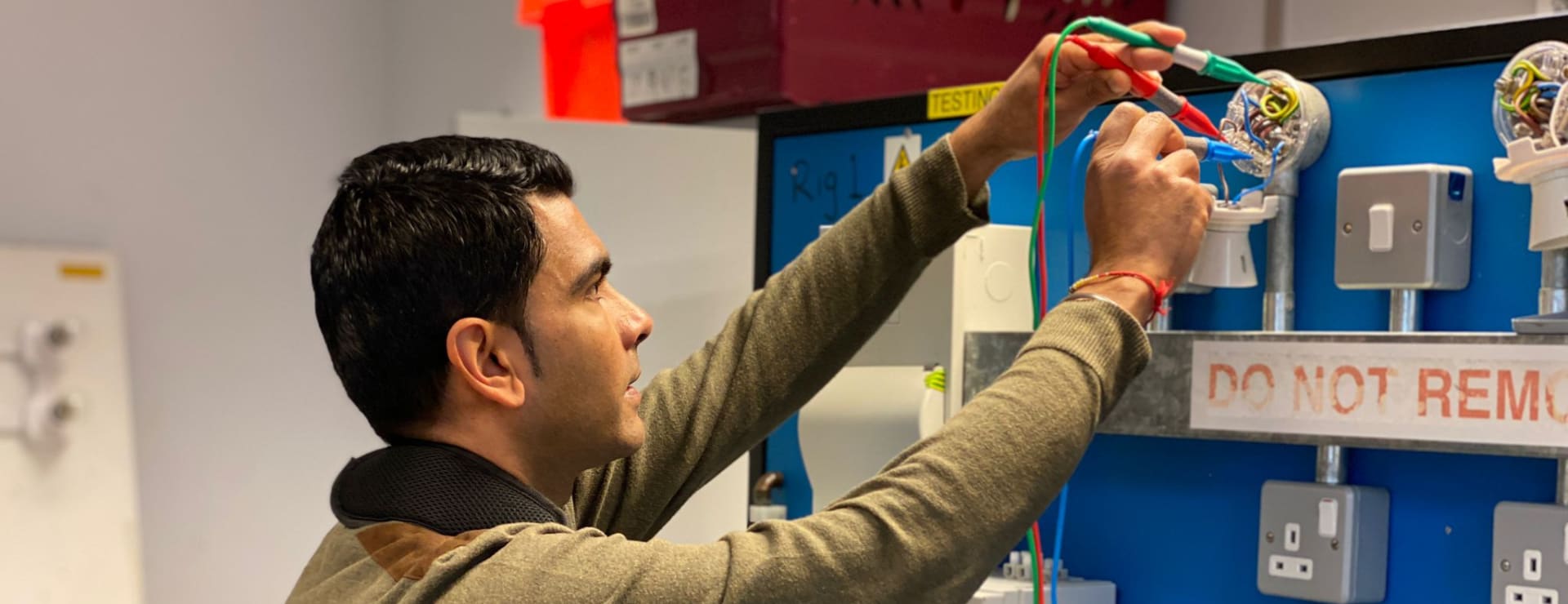
Why Periodic Inspection & Testing Qualifications Matter
Before we get into the nitty-gritty of City & Guilds versus LCL Awards, let’s talk about why these qualifications are so important. Periodic inspection and testing isn’t just a box-ticking exercise, it’s about keeping people safe, properties compliant, and your career on the up and up.
Legal requirement
The Electricity at Work Regulations 1989 make it clear: electrical installations must be maintained to prevent danger. Regular inspection and testing are non-negotiable.
BS 7671 compliance
The IET Wiring Regulations (currently 18th Edition) set the standard for electrical installations in the UK. Inspection and testing are central to meeting these standards.
Professional credibility
Whether you’re self-employed or working for a big contractor, having a recognised qualification shows clients you know your stuff.
Career progression
Many employers and Competent Person Schemes (like NICEIC and NAPIT) require formal inspection and testing qualifications for registration.
The Main Contenders: City & Guilds 2391/2395 vs LCL Awards Level 3
Let’s get to the heart of the matter: which qualification should you choose? Both City & Guilds and LCL Awards offer respected routes for experienced electricians, but there are some key differences you need to know.
City & Guilds 2391 (formerly 2394/2395)
- Long-standing reputation: City & Guilds has been the gold standard for electrical qualifications for decades.
- Course content: Covers the full periodic inspection and testing process, including initial verification, condition reporting, and certification.
- Assessment style: Traditionally, City & Guilds assessments are closed book, with a mix of written exams and practical tests. The written assessments are sent off for marking, which can mean a long wait for your results (sometimes up to eight weeks).
- Recognition: Universally recognised by employers, Competent Person Schemes, and the Joint Industry Board (JIB) for ECS card applications.
LCL Awards Level 3 Award in Periodic Inspection, Testing & Certification
- Modern approach: LCL Awards have made a real impact in the industry, offering a fresh alternative to the old guard.
- Course content: Mirrors the City & Guilds syllabus, covering everything you need for periodic inspection, testing, and reporting. Both qualifications are awarded under the national RQF framework and regulated by Ofqual, using the same RQF units and practical/knowledge outcomes.
- Assessment style: Open book! You’ll have access to BS 7671 and guidance notes during your assessments. There’s no need to memorise every regulation. Plus, assessments are marked by assessors, so you get your results almost immediately. No more nail-biting eight-week waits.
- Flexibility: Written assessments are completed as part of the course, making the learning experience more streamlined and less fragmented.
- Recognition: Also recognised by JIB and accepted by ECS for card applications. Provides a progression route from the LCL Awards Level 3 Award in Initial Verification & Certification.
Side-by-Side Comparison
Here’s a handy table to help you weigh up the options:
| Feature | City & Guilds 2391/2395 | LCL Awards Level 3 |
|---|---|---|
| Syllabus | Periodic Inspection, Testing, Reporting | Periodic Inspection, Testing, Reporting |
| Assessment | Closed book, written & practical, delayed results | Open book, written & practical, instant results |
| Marking | External (can take 6–8 weeks) | Internal (results almost immediate) |
| Recognition | Industry gold standard, JIB, ECS | JIB, ECS, equally recognised |
| Availability | Standalone or part of a suite | Standalone |
| Delivery | May require return visits for assessment | All assessments completed during the course |
| Entry Requirements | Experienced electricians | Experienced electricians |
| Course Provider | NAPIT training and others | Logic4training and others |
Please note that the table’s results are current as of May 2025 and are subject to change.
What’s Actually Taught? Course Content Breakdown
Both qualifications cover the essentials for periodic inspection and testing. Here’s what you’ll get to grips with:
- Electricity at Work Regulations: Understanding your legal responsibilities.
- BS 7671 & Guidance Note 3: The nuts and bolts of wiring regulations and inspection/testing best practice.
- Inspection & Testing Process: From visual checks to instrument testing, you’ll learn the full process.
- Condition Reporting: How to complete Electrical Installation Condition Reports (EICRs) and code observations correctly.
- Practical Skills: Hands-on testing, fault-finding, and safe isolation procedures.
- Certification: Completing all the paperwork to a professional standard.
Want more details? Check out our Periodic Inspection & Electrical Testing Course – L3 RQF.
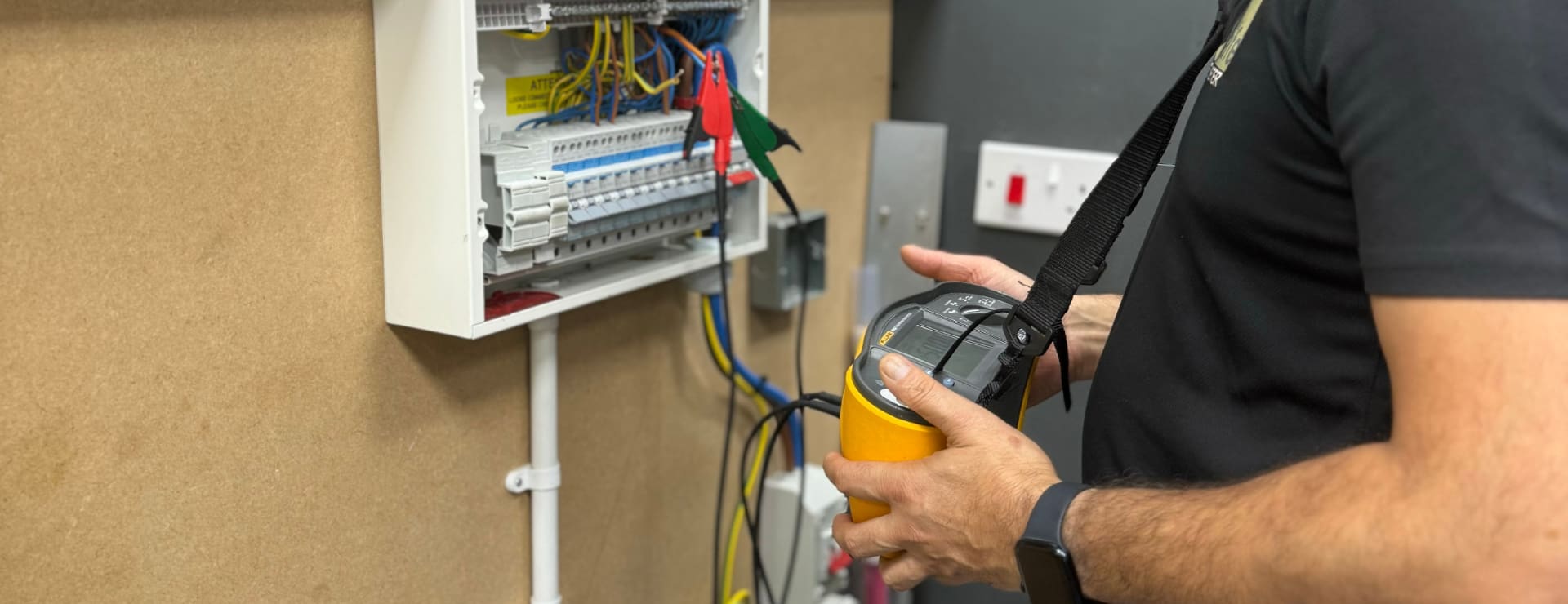
Open Book vs Closed Book: Does It Matter?
Some electricians worry that open-book assessments are “easier” or less respected. Let’s clear that up.
- Open book doesn’t mean easy: You still need to know where to find information quickly and apply it correctly. It’s about testing your understanding and your ability to use reference materials, just like you would on-site.
- Reflects real-world practice: No one expects you to memorise every clause of BS 7671. Being able to use the regs book effectively is a key skill.
- Assessment integrity: Both City & Guilds and LCL Awards are regulated by Ofqual, so standards are maintained regardless of assessment style.
What About ECS Cards and Competent Person Schemes?
Both City & Guilds and LCL Awards periodic inspection and testing qualifications are recognised by the JIB for ECS card applications. They are also accepted by all major Competent Person Schemes, such as NICEIC and NAPIT.
If you’re looking to join a scheme or get your ECS card, either route will get you where you need to go. You can learn more about ECS cards in our What is an ECS card and how to apply article.
Progression Routes: Where Next?
Once you’ve got your periodic inspection and testing qualification, what’s next?
- Wiring Regulations (18th Edition): Staying up to date with the latest regulations is essential for all practising electricians.
- EV Charging & Energy Storage: The future is electric. Get ahead with specialist courses in electric vehicle chargepoint installation and electrical energy storage systems.
Why Logic4training?
Let’s be honest: where you train matters just as much as what you train in. Here’s why Logic4training is the smart choice for your periodic inspection and testing qualification:
- Industry expertise: We’ve been delivering electrical training for over a decade, with a team of tutors who are still active in the trade.
- Flexible delivery: Courses designed to fit around your work commitments.
- Immediate results: No more waiting weeks for your results! Our LCL Awards assessments are marked in-house.
- Supportive environment: We’re known for our relaxed, friendly approach. No stuffy classrooms or intimidating examiners.
- Career progression: Our courses are recognised by JIB, ECS, and Competent Person Schemes, helping you take the next step in your career.
Explore our full range of electrical training courses to see which suits you best.
FAQs
Which is better: City & Guilds or LCL Awards for periodic inspection and testing?
Both are equally recognised and regulated under the RQF framework. LCL Awards offers a more modern, open-book assessment with faster results, while City & Guilds has a longer history and closed-book exams. It comes down to your learning style and preference.
Can I use an LCL Awards qualification to get my ECS card?
Yes, the LCL Awards Level 3 Award in Periodic Inspection, Testing & Certification is recognised by the JIB and accepted for ECS card applications.
Do I need to memorise the wiring regulations for the LCL Awards course?
No. The LCL Awards assessment is open book, so you’ll have access to BS 7671 and guidance notes during the exam. You do need to know how to use them effectively.
How quickly will I get my results with Logic4training?
For LCL Awards, results are marked by assessors, so you’ll usually find out how you did almost immediately, so no long waits!
What’s the difference in course content between City & Guilds and LCL Awards?
Both cover the same core syllabus: periodic inspection, testing, condition reporting, and certification. The main difference is in assessment style and delivery, not content.
Ready to Take the Next Step?
Whether you’re a seasoned spark or looking to add new strings to your bow, Logic4training has the course for you. Our Periodic Inspection & Electrical Testing Course – L3 RQF is designed to get you qualified, confident, and ready for whatever the industry throws your way.
Still got questions? Give us a call on 020 8845 7222 or check out our Insights blog for more tips and advice.
Stay sharp, stay safe, and keep those installations compliant. See you in the classroom.
Looking for something else? Browse all our Electrical Training Courses or check out our latest Insights for more industry know-how.
